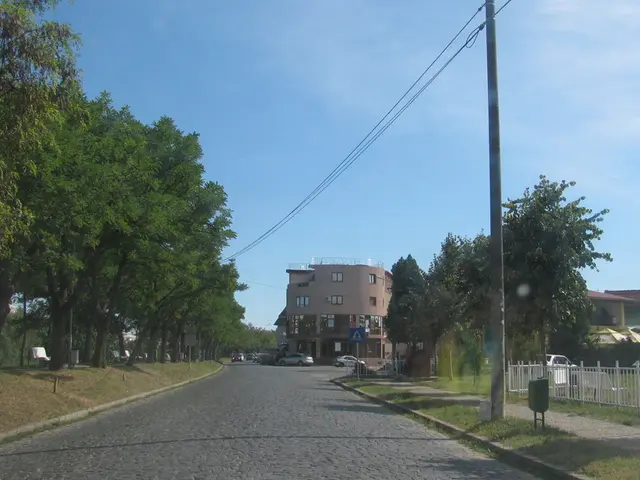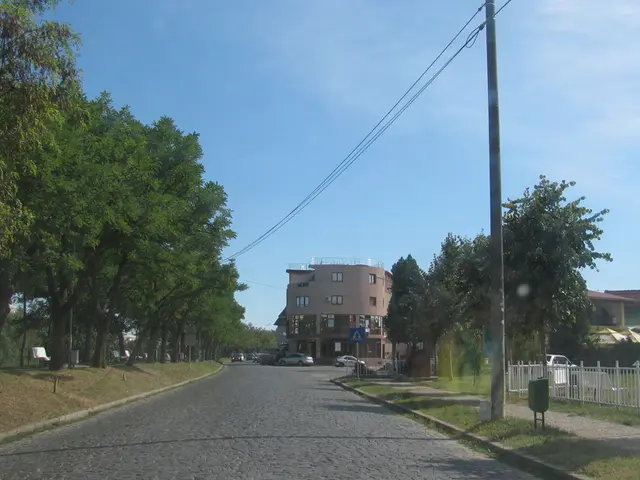Growing interest in private solar energy systems among American residents, emulating a widespread European trend.
In the United States, portable plug-in solar panels, also known as balcony or plug-and-play solar systems, are an emerging technology that promises to make solar energy more accessible for homeowners. However, as of 2025, these systems are largely not yet legal or standardized across most U.S. states due to safety and regulatory concerns.
According to reports from NPR, if other states adopt legislation like Utah's, it could make the use of plug-in solar more common. Utah, in fact, has already passed a bipartisan law in 2025 allowing plug-in solar installations without permits or utility fees, provided they meet national electrical codes and safety standards with certified components. This exemption from typical interconnection agreements makes such systems legal for home use.
These small solar systems consist of panels connected to a device that converts solar energy to usable electricity, and can be plugged into a standard home outlet. A typical small setup can cover around 20% of an average household’s electricity needs.
However, safety concerns are significant. Improperly installed plug-in panels could cause fires or backfeed electricity into the grid during outages, risking utility workers. Current individual components might have UL (Underwriters Laboratories) certification, but the entire assembled systems do not yet have a UL listing, which complicates approval and legality.
In most of the U.S., it's not entirely legal to set up plug-in solar and plug it in due to the technology being new and not in most electrical codes. This makes installations cumbersome and costly, deterring broad adoption.
In Berkeley, California, Matt Milner, a resident, has installed two new 6-foot-tall solar panels, provided by Bright Saver, a nonprofit aiming to bring plug-in solar to the U.S. market. The cost for Milner to install a plug-in solar system is under $1,700, compared to tens of thousands of dollars for a traditional solar array.
Dan Kammen, an energy professor at Johns Hopkins University, states that plug-in solar arrays are a small piece of the overall energy demand, but every bit helps reduce planet-warming emissions. Kammen also mentions that plug-in solar arrays serve as conversation starters and are a form of environmental education.
Efforts are underway to update electrical codes and safety certifications to accommodate these devices more broadly, reflecting growing consumer interest and policy support for decentralized, smaller-scale solar solutions. Kevin Chou, co-founder of Bright Saver, predicts that in three to four years, it will be as simple as buying a product at Walmart or Costco.
Plug-in solar allows individuals to "dip their toe" into solar power generation without a huge financial commitment. However, to install a plug-in solar system, one has to jump through the same regulatory hoops and fees as if setting up a full rooftop solar array, due to safety concerns.
State representative Raymond Ward, who wrote the bill allowing plug-in solar in Utah, believes the technology has appeal across the political spectrum. Plug-in solar, even if everyone had them, would still only cover a slice of overall energy demand. Nevertheless, it's a step towards a more sustainable future.
References:
[1] Federal incentives for residential solar are winding down by the end of 2025 (Source: NPR) [2] Safety concerns are significant (Sources: NPR, Underwriters Laboratories) [3] Most states do not currently permit direct plug-in solar use (Sources: NPR, Bright Saver) [4] Plug-in solar systems consist of panels and a converter (Sources: NPR, Bright Saver) [5] Utah has passed a bill allowing plug-in solar without registration (Sources: NPR, Bright Saver)
- As more states consider adopting legislation like Utah's, the use of plug-in solar could become more widespread in the United States.
- In 2025, Utah passed a bipartisan law that allows plug-in solar installations without permits or utility fees, as long as they adhere to national electrical codes and safety standards.
- Concerns over safety and regulatory issues are currently impeding the broad adoption of portable plug-in solar panels across the U.S.
- Plug-in solar arrays are considered a relatively small contribution to overall energy demand, but they still help reduce planet-warming emissions.
- Installation costs for plug-in solar systems are significantly lower compared to traditional solar systems, making it an accessible option for homeowners.
- In response to growing consumer interest in plug-in solar, efforts are underway to update electrical codes and safety certifications to enable broader accommodation of these devices.




